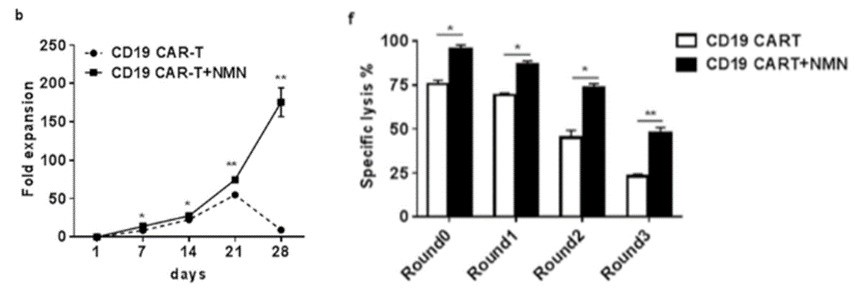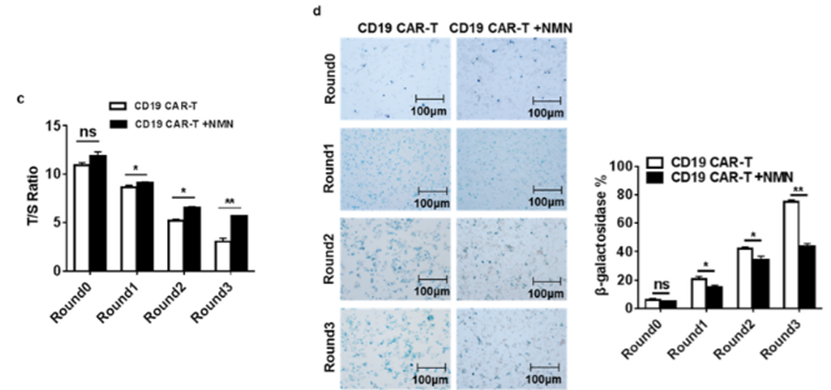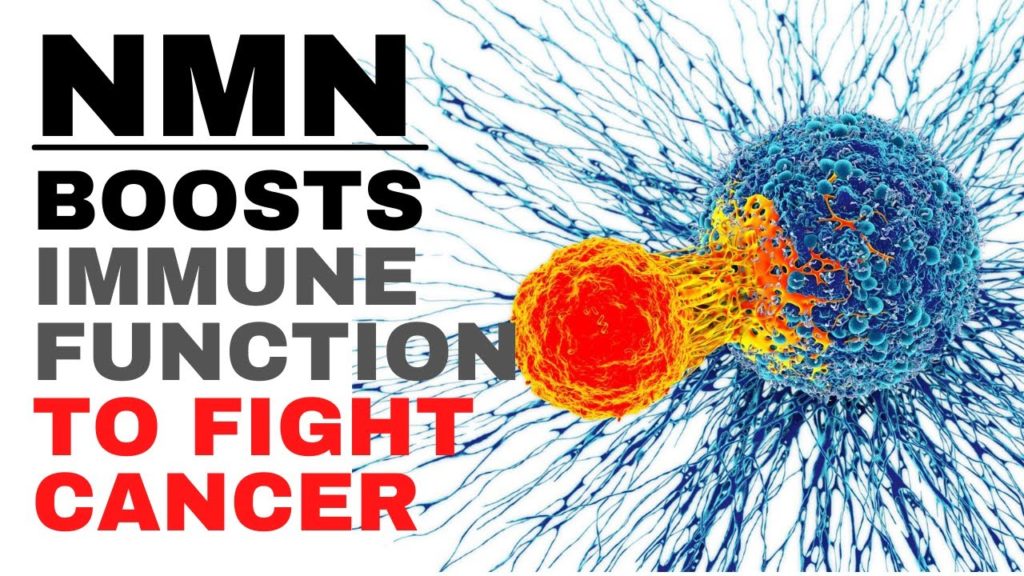Nicotinamide mononucleotide plays a vital role in energy production and is involved in synthesizing NAD (nicotinamide adenine dinucleotide), an essential coenzyme for cell energy conversion. NAD+ level is critical in the process of energy production and DNA repair. NAD+ is involved in thousands of redox enzymatic reactions in the human body. NMN can boost NAD+ levels, which helps in DNA repair, helps repair damaged DNA and cells, reduce cell mutation, and prevent cancer. As a coenzyme, NAD+ is essential because it allows enzymes to catalyze important biological processes and create necessary products for the body to survive. Each cell requires energy to stay alive.
The role of our immune system
The immune system is the body’s first line of defense against the foreign organisms that attack it. The cells, tissues, and organs together make the body’s overall protection as a part of the immune system. White blood cells, and leukocytes, are especially important. There are two basic types of these cells, which combine to make it easier to find and destroy the organism that leads to infection.
Under normal conditions, the number and growth of all our cells is a strictly controlled mechanism. But when the control signals in one of these cells are disrupted, the cell life cycle changes and begins to divide constantly. It continues to multiply without being able to control itself, and the result is an accumulation of abnormal cells as a mass of cells called a “tumor.”
NMN effects on cancer
Many investigations have found that NMN has a significant effect on inhibiting cancer growth cells and prolonging the cell’s life. For that case, researchers investigate the NMN treatment on CAR-T (Chimeric antigen receptor T) cell therapy.
Chimeric antigen receptor T (also known as chimeric immunoreceptors, chimeric T cell receptors, or artificial T cell receptors) is a receptor protein that is designed to give T cells a new ability to target a particular protein. Receptors are chimeric because they combine the functions of antigen binding and activation of T cells into one receptor. They are T cells that have been genetically engineered to produce an artificial T cell receptor for use in immunotherapy. Administration of NMN in this condition has shown improvements in some age-related diseases such as neurodegenerative, cardiovascular, metabolic disorders, and many more.
The key findings
There are two types of T cells, including stem memory T cells (TSCM) and memory T cells (Tcm). They both play an important role in maintaining memory and secrete inflammatory cytokines to kill the foreign cells. Therefore, increasing their percentage in CAR-T cells can be crucial for the immune response. For this study, NMN was investigated on the longevity of CD19 CAR-T lymphocyte cells, both in vivo and in vitro, simultaneously increasing the NADH/NAD+ ratio, the activation of Sirt1, and related genes.
Whether NMN treatment affects CAR-T, the researchers investigate the proliferation of the CAR-T cells while NMN is given and killing the target cells. CD19 CAR-T cells were treated with MNM in the presence of NALM-6 cells in culture. The results showed that NMN-treated cells show significantly proliferation compared with the CD19 CAR-T cells with no NMN given. In addition, the NMN-treated cells were 180 times more present, while non-NMN-treated CD19 CAR-T cells died. This means that NMN can improve antitumor activity.

NMN treatment improves CD19 CAR-T cell longevity
Additionally, NMN has increased the TSCM/Tcm ratio and delayed the aging of CAR-T cells. For this case, they investigate the activity of telomerase, an enzyme that protects the chromosome ends. Telomerase is a critical point in T cell division, and its activity is decreased during T cell aging, differentiation, and diseases. Low telomerase activity can lead CAR-T cells to die and become senescent. To determine if NMN affects the senescence of CD19 CAR T cells, they measure the telomerase activity. After NMN treatment, the telomerase activity was increased, and thus the number of senescent CD19 CAR T cells significantly decreased. Therefore, NMN shows to impact CD19 CAR-T cell longevity positively.

NMN-treated CD19 CAR-T cells block tumor activity in mice
The following finding was whether NMN-treated cells could make a difference in suppressing tumor growth in mice. First, the mice were treated with NALM-6 leukemia cells to create a cancer model. Then, NMN-treated CD19 CAR-T cells were injected. The NMN treatment has shown a decrease in tumor growth and volume. Therefore, NMN is a great approach for enhancing CD19 CAR-T cell longevity based on this finding.
NMN has an impact on Sirt1 genes
The activation of the Sirt1 gene is related to cell longevity. NMN can improve CD19 CAR-T cell longevity by upregulating Sirt1. Also, NMN positively affects the inflammation in immunotherapy. This study demonstrates that NMN treatments can reduce the production of interleukins such as IL-6.
To sum up
This study highlights the NMN effects on CAR-T cells. CAR-T cells therapy can be a possible immunotherapy treatment for various human cancers. Also, according to this study, NMN treatment has improved CAR-T cell properties. Moreover, the short-length telomerase is linked to age-related diseases. For this study, longer telomere length in CD19 CAR-T cells with NMN was observed. As we get old, our immune system weakens, and our organism is more exposed to diseases. Therefore, boosting our NAD+ levels with NMN can be an effective prevention against cancer growth.
References
Yu, Z., Tong, S., Zhang, C., Bai, Y., An, Z., Xu, C., Wang, F., Hu, Y., Zhuang, Q., & Zhong, X. (2022). Nicotinamide mononucleotide enhances the efficacy and persistence of CD19 CAR-T cells via NAD + –Sirt1 axis. Research Square Platform LLC. https://doi.org/10.21203/rs.3.rs-1483519/v1



